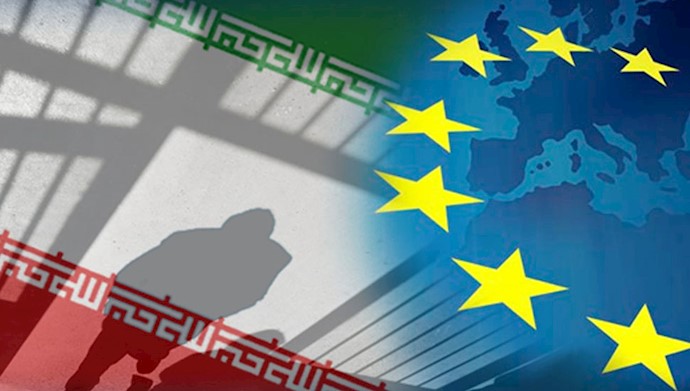Analysis by PMOI/MEK
March 8, 2019 – On Wednesday, European Union ambassadors decided to keep sanctions imposed on dozens of Iranians accused of severe human rights abuses in place for another year. The prolongation of the measures will be formally approved by EU ministers in the coming weeks. This is another blow to the Iranian regime’s relations with Europe at a time when the regime needs it more than ever before.
About a month ago, EU imposed sanctions against institutions and individuals associated with the Iranian ministry of intelligence. Germany sanctioned Mahan Air, a cover airline for the IRGC. Britain sanctioned the Lebanese Hezbollah, one of the most important proxies of the religious dictatorship.
Putting European measures in perspective
These measures obviously hurt European policy of appeasing the regime and trying to keep JCPOA alive. Then the question is why? What is the reason for the contradiction in European policies toward Iran? Why do we see the expulsion of the regime’s ambassadors at the same time when Europe is trying to provide the regime with some means of evading US sanctions? Why are the regime’s institutions and proxies sanctioned by the same European countries who want to keep JCPOA on life support?
Simply put, Europe has no other choice; reluctant, but obliged. The contradiction here is not a tactical one. It stems from the strategic flaw in attempting to support the religious fascism. The dimensions of the regime’s terrorist behavior abroad and domestic human rights violations are such that no one can ignore. In 2019 alone, four major terrorist plots by the regime were discovered on European soil, namely in France, Denmark, Netherlands, and Albania. Add to those four other countries also involved in the cases: Belgium, Germany, Norway, and Luxemburg.
Iran’s misconduct not limited to terrorism
While the UN human rights commission convenes in Geneva, Amnesty International reports of deteriorating human rights situation in Iran. It also exposes many of the regime’s current officials who have been involved in 1988 massacre. How can Europe not prolong sanctions when the UN bodies have condemned the regime on 65 occasions?
If terrorist plots and human rights violations are not enough to rule out any diplomatic overture, there is no shortage of destabilizing behavior as far as the regime is concerned. The ballistic missile testing and development as well as meddling in the affairs of other countries in the region make it impossible not to react against the regime.
The French daily Le Monde reported on February 5, 2019 that EU found Iranian services’ intervention “intolerable” on its soil.
On March 3, Middle Eastern daily Asharq Al-Awsat quoted informed sources as saying that four European countries, France, Britain, Germany and Italy had specified three issues that Iran must recognize for continuations of relations with Europe. First, to stop destabilizing activities through its support for proxy groups in Lebanon, Syria, Iraq and Yemen. Second, to abandon the program for development, deployment and construction of ballistic missiles in Iran and in countries where it has military forces and proxies. The third is to “give up its threats to the existence and security of Israel.”
Obviously, the three conditions are not going to be met by the regime. As a commander of the IRGC put it in a TV interview “Changing our behavior means changing our regime.”





